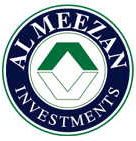| |
DUBAI — Faced with a relatively small number of Shariah-compliant investment opportunities in the Gulf region in comparison to the huge pool of liquidity, Gulf countries are expected to face Islamic capital flight, said A. Rushdi Siddiqui, Global Director, Islamic Market Index Group, Dow Jones Indexes.
Speaking to Khaleej Times yesterday, Siddiqui said, Islamic finance sector in the region is facing a huge risk of capital flight if adequate investment opportunities and asset classes are not created and these are made accessible to all segments of investors including the retail investors.
“If the money raised through Islamic funds can't be deployed in attractive investment avenues in the region, these funds will go in search of better returns elsewhere. Unfortunately, the quantum of Shariah-compliant equities and funds are few and those available are relatively illiquid. Under these circumstances, fund mangers will be forced to look at alternate markets,” he said.
The Middle East region is estimated to have private liquidity in excess of $2.3 trillion, out of this about 1.5 trillion is in the GCC. Although a part of GCC's liquidity is absorbed by the real estate and infrastructure sector through sukuks, most of these offerings are wholesale in nature and are not accessible to the retail investors.
In many respects, 2006 was a watershed year for the increasing involvement of GCC utilities and corporates in Islamic finance. Through sukuk issuances and in syndicated Murabaha facilities, Gulf institutions raised close to $20 billion last year.
The appeal of sukuks and Islamic syndications are spreading fast across many leading conventional markets including the USA. Following the first sukuk issued out of the US by gas company, East Cameron Partners in Houston in 2006, Western corporates in the US, UK, the EU and Central Europe are also showing interest in this structure to raise funds to refinance existing corporate debt or to finance working capital and expansion activities, including acquisitions. The Singapore Stock Exchange (SGX) together with Barclays Capital and others are working toward issuing the first exchange traded fund of the SGX/FTSE Asia 100 Shariah Index. While Turkey is emerging a mature market for complex Islamic finance structures, other markets on the fringe include include South Africa, Russia, Latin America and China.
“There is an urgent need to create a wider investor base in Islamic investment opportunities. Sukuks may remain predominantly a domain of institutional investors and high networth individuals, because many of these class of investors are not in need of trading. However, other classes of instruments such as Islamic real estate investment trusts (REITs) and sukuk funds can address the needs of retail segment of the market.”
While there is huge growth in Islamic banking and Islamic finance, Siddiqui said, the institutions, Shariah supervisory boards and the financial market regulators need to do more to protect the interests of the retail segment of Islamic banking customers and investors.
The balance sheets, deposits, number of branches, assets under management of many Islamic financial institutions (IFIs) are growing by between 25 to 40 per cent. As competition hots up many institutions are in a hurry to push their products to customers. Such competition could lead to over leveraging and weak asset base.
“One of the basic objectives of Islamic finance is to save people from Riba (interest). But if overleveraging is causing debt traps, the purpose itself is defeated.” Although there are moves towards setting up credit rating agencies in some of the GCC countries, Siddiqui said Islamic institutions and the governments from the region should take the initiative to guard the market against over leveraging. |






